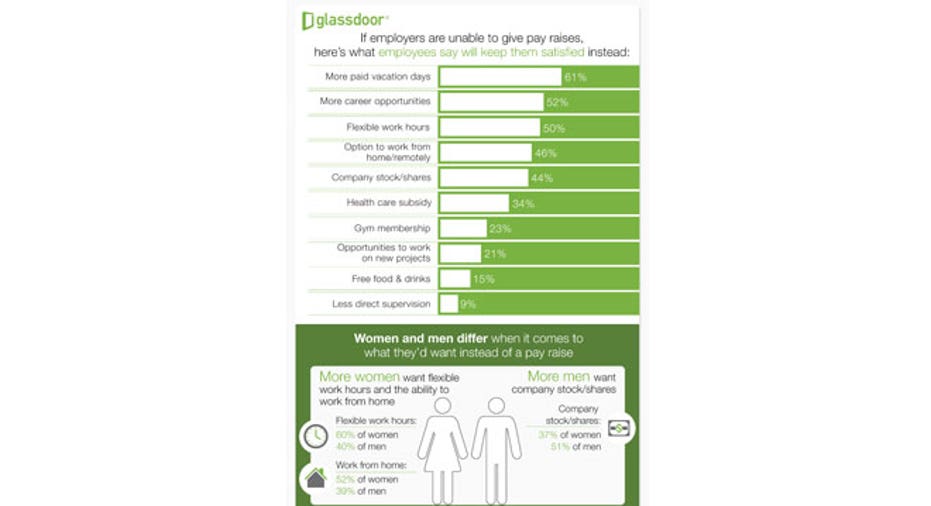Survey: 2 in 5 Workers Believe They’re Paid Unfairly

President Obama has made income inequality a big focus in 2014, and a new report shows two out of three workers believe they aren’t paid fairly.
A new report from career services site Glassdoor finds 42% of women say they are unfairly paid compared to 34% of men.
“It’s a big number,” says Rusty Rueff, Glassdoor career expert. “Sixty-two percent also say they would consider leaving for a new job if there was a pay increase or if they don’t feel they are moving toward a more fair pay level; they take off.”
In early April, Obama signed an executive order that prohibits federal contractors from retaliating against employees who discuss compensation rates, and an Presidential Memorandum instructing the Labor Department secretary to establish new regulations that require federal contractors to submit compensation data by sex and race.
And the burden to fix this is on employers, Glassdoor finds, with more than half of respondents (57%) saying their employer is in the best position to fix the problem.
The survey found that other benefits could keep employees happy, including more paid vacation days (61%), career opportunities (52%), flexible work hours (50%), remote work options (46%) and company and stock shares (44%).
Also of interest to workers if a pay hike is not an option is a health-care subsidy (34%), gym membership (23%), opportunities to work on new projects (21%), free food and drinks (15%) and less direct supervision (9%).
Women are more interested in flexible work hours (60%) than men (40%), as well as the option to work from home with 52% of women interested versus 39% of men. Men were more interested in company stock shares over women at 51% versus 37% when a pay raise was not on the table.
The survey also shows there’s a major pay gap between employers at the executive level and those mid-tier workers.
“There’s still a hangover from the great recession,” he says. “Forty-five percent say it’s worsening, and that employers need to do a better job of explaining why senior executives are paid the way they are.”



















